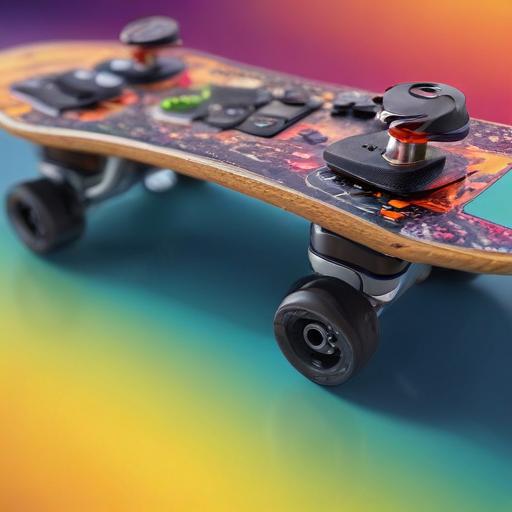Elissa Steamer, a pioneering figure in the world of skateboarding, reflects on her early experiences with skateboarding video games prior to 1999. While she dabbled in classics like Mike Tyson’s Punch Out and The Legend of Zelda, she distinctly remembers the first skate games such as 720, Town & Country Surf Designs: Wood & Water Rage, and Skate or Die!—none of which adequately captured the essence of skateboarding, as she recalls, “It was very 1980s.”
In the late 1990s, while Steamer was making a name for herself as a professional skateboarder, news surfaced about a new video game featuring Tony Hawk. The game, Tony Hawk’s Pro Skater, was introduced in 1999, and the impact that it had on skateboarding culture was monumental. Steamer was drawn to the game and was later contacted by Activision and Neversoft to be featured, making her the first woman in a Tony Hawk video game. This marked a significant step forward in increasing the visibility of women in the sport.
Twenty-six years later, the influence of the original THPS is still palpable. Steamer credits the game with broadening the skateboarding community and drawing more people into the culture. It played an essential role in transitioning skateboarding from a niche interest to a mainstream phenomenon. “At that time, skateboarding was pretty low key, and I think that just kind of boosted skateboarding into the mainstream,” Steamer explained, highlighting how the game allowed many to engage with skate culture without necessarily skating themselves.
The ongoing success of the Tony Hawk franchise has led to 20 additional games, with the latest release, Tony Hawk’s Pro Skater 3 + 4, arriving on July 11. This remaster celebrates the original titles from 2001 and 2002 while introducing modern enhancements, expanded diversity, and new skaters—including an increase in female representation and the inclusion of transgender athlete Leo Baker.
Steamer, now celebrating her 50th birthday, sees the growing inclusion of women and LGBTQ+ individuals in the game as vital for expanding the sport’s reach. “If you see somebody like you doing something you want to do, then you know you can do it,” she asserted, emphasizing the importance of representation.
Nora Vasconcellos, a professional skateboarder who grew up in an area devoid of skate culture, credits THPS for introducing her to skateboarding legends like Steamer. The game not only cultivated her passion for skateboarding but has also become a key component of her identity as a skater. Growing up, Vasconcellos felt connected to the sport through the music and characters in the game.
Both Steamer and Vasconcellos are part of a diverse cast of female skaters featured in the new remaster, including Lizzie Armanto and Letícia Bufoni. They highlight the significant strides made in fostering an inclusive environment within skateboarding, with opportunities for women and minorities increasing over the years.
As skateboarding continues to gain mainstream attention, with its presence in the Olympics, Steamer feels optimistic about the future of the sport. “The future of skating is in good hands,” she says, looking forward to witnessing a new generation of skaters thriving in a space she helped shape.
Steamer’s journey exemplifies the power of representation and the ripple effect of video games on youth culture, inspiring countless individuals to pursue their passion for skateboarding. With the positive growth of the sport, it’s clear that skateboarding is set to reach new heights.
